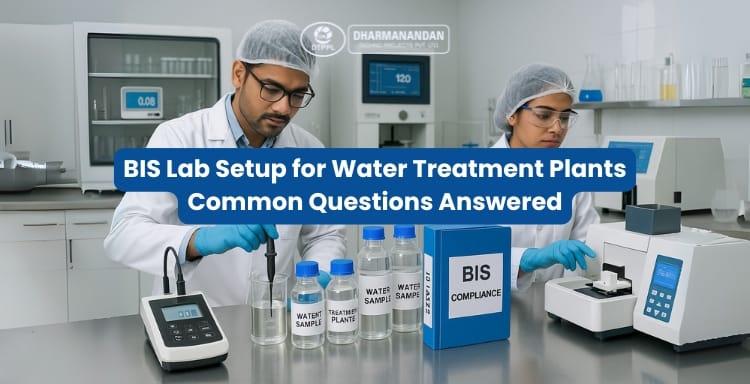
Table of Contents
BIS Approved Laboratory Setup for Water Treatment Plants – FAQs
July 31, 2025
The production of mineral water and soft drinks in India and across the globe is a highly regulated industry to ensure quality, safety, and public health. Manufacturers are required to follow strict guidelines set by organizations like BIS (Bureau of Indian Standards), ISI (Indian Standards Institute), FSSAI (Food Safety and Standards Authority of India), and WHO (World Health Organization). A BIS approved laboratory setup for mineral water/soft drink quality control is a key component of this regulatory framework. Ensuring that quality control processes are in compliance with these standards is crucial for the success of any mineral water or soft drink plant setup.
In this article, we will answer some frequently asked questions regarding the setup, requirements, applications, installation, costs, maintenance, and benefits of establishing a BIS approved laboratory for quality control in the mineral water/soft drink industry. These questions cover a range of topics, from industry standards to financial assistance, components, and the global demand and supply of mineral water and soft drinks. We will also provide insights on specific Indian cities and global countries, addressing the demand for mineral water plants and soft drink production facilities.
What are the BIS standards for the quality control of mineral water in India?
The BIS (Bureau of Indian Standards) defines the IS 14543 standard for mineral water quality in India. It specifies acceptable limits for Total Dissolved Solids (TDS), microbial contaminants, and chemical composition in water. The FSSAI guidelines also support these standards to ensure safe consumption. The BIS standards ensure that mineral water meets safety requirements in packaging, labeling, and water quality.
What are the essential components required for a BIS approved laboratory for mineral water/soft drink quality control?
A BIS approved laboratory for quality control requires:
- Testing equipment such as spectrophotometers, chromatographs, and TDS meters for chemical analysis.
- Microbiological testing kits for detecting pathogens.
- Cleanroom facilities to maintain controlled testing environments.
- Reagents and chemicals to conduct necessary tests on raw materials and finished products.
- Proper storage for samples and consumables to maintain their integrity.
How does a BIS approved laboratory help in ensuring compliance with FSSAI and WHO standards?
A BIS approved laboratory helps ensure that mineral water or soft drink plants comply with FSSAI and WHO standards by:
- Performing regular quality checks for microbial safety and chemical composition.
- Conducting tests for pathogens such as E. coli, salmonella, and heavy metals.
- Ensuring that the product adheres to packaging and labeling regulations.
Ensuring safe levels of preservatives and flavorings in soft drinks as per WHO guidelines.
What are the benefits of installing a BIS approved laboratory in a mineral water/soft drink plant?
The benefits include:
- Regulatory compliance: Adhering to BIS, FSSAI, and WHO standards.
- Ensuring product safety: Preventing contamination and ensuring quality.
- Market trust: Products meet industry standards, ensuring consumer confidence.
- Product consistency: Ensures the consistency and quality of every batch produced.
How does BIS certification affect the demand for mineral water and soft drinks in India?
BIS certification is a mark of trust and quality. It helps enhance product credibility, boosting consumer confidence. Since BIS approved mineral water and soft drinks comply with national standards, they are preferred over non-certified alternatives. This leads to higher market demand and gives the product a competitive edge, particularly in regulated sectors like retail and foodservice.
What are the common tests performed in a BIS approved laboratory for mineral water quality control?
Common tests performed include:
- Microbiological tests to check for harmful bacteria and viruses.
- Chemical analysis for parameters like TDS, pH, and mineral content.
- Heavy metal testing (e.g., lead, mercury) to ensure no toxic substances are present.
Sensory testing to ensure taste, odor, and appearance meet standards.
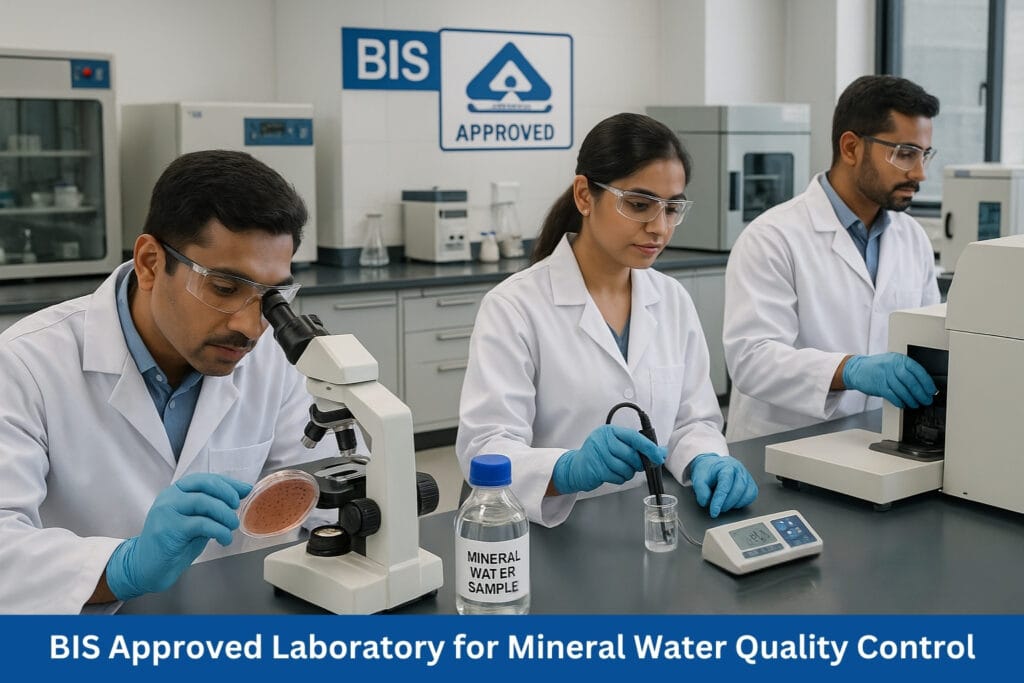
How can a BIS approved laboratory for mineral water and soft drink quality control help improve the plant’s efficiency?
A BIS-approved laboratory helps improve plant efficiency by:
- Reducing product rejections through consistent quality control.
- Ensuring compliance with regulatory standards, avoiding legal issues.
- Detecting issues early, reducing wastage, and improving production timelines.
- Enhancing product consistency, leading to fewer customer complaints.
What are the initial costs involved in setting up a BIS approved laboratory for mineral water and soft drinks?
The costs of setting up a BIS approved laboratory depend on the size and scale of the plant and required equipment. Typically, it can range between INR 10-50 lakh for basic setups and can increase depending on advanced equipment and required space. For customized pricing, it is recommended to contact Dharmanandan Techno Project Pvt. Ltd., who specializes in such setups.
What financial assistance options are available for setting up a BIS approved laboratory in India?
Several financial assistance options are available, including:
- Government subsidies under the Make in India and Startup India initiatives.
- Bank loans and financial schemes offered by SIDBI (Small Industries Development Bank of India) and NABARD (National Bank for Agriculture and Rural Development).
- Assistance from organizations like MSME for equipment purchase and infrastructure development.
Read Our Article: How to Get ISI (BIS) and FSSAI License for a Mineral Water Plant?
How do BIS approved laboratories ensure the accuracy of quality control tests?
BIS approved laboratories maintain accuracy by:
- Using calibrated equipment for precise measurements.
- Following standard operating procedures (SOPs) to ensure consistency in testing.
Regularly conducting proficiency testing and inter-laboratory comparisons to validate results.
How long does it take to set up a BIS approved laboratory for mineral water/soft drink quality control?
Setting up a BIS approved laboratory can take 3 to 6 months, depending on the size of the plant and the complexity of the required equipment. This includes time for installation, testing, calibration, and obtaining necessary certifications.
What maintenance is required for a BIS approved laboratory for mineral water/soft drink quality control?
Maintenance involves:
- Regular calibration of equipment to ensure accuracy.
- Cleaning and sterilization of laboratory tools to prevent contamination.
- Replacing consumables such as reagents and filters.
Ensuring that safety protocols are followed to protect workers and equipment.
What are the global standards for mineral water and soft drink quality control?
Global standards include:
- WHO standards for water quality, setting limits on microbial contamination and chemical composition.
- Codex Alimentarius (WHO/FAO) guidelines for soft drinks, including safe levels of sugars, additives, and preservatives.
- EU regulations on water treatment and soft drink production, ensuring consistency across member states.
How does a BIS certified laboratory impact the export potential of mineral water and soft drinks?
Having a BIS certified laboratory increases the export potential by ensuring compliance with international regulations. Many countries require certification from recognized agencies like BIS or ISO before allowing the import of mineral water or soft drinks. Compliance with international standards enhances the marketability and trustworthiness of the product globally.
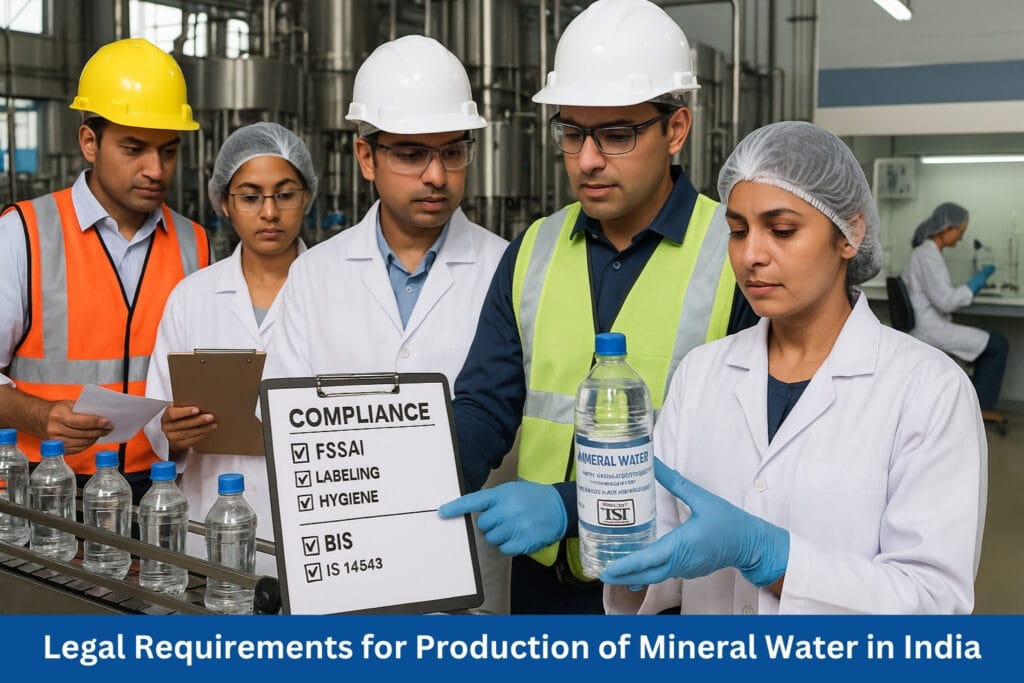
What are the legal requirements for the production of mineral water in India?
Legal requirements include:
- Obtaining FSSAI licenses for production and distribution.
- Ensuring compliance with BIS IS 14543 and ISI standards for water quality.
- Proper labeling with source details, treatment methods, and product ingredients.
- Regular microbiological testing to meet FSSAI’s safe limits.
How do BIS approved laboratories for soft drink production ensure consistency in flavor and quality?
BIS approved laboratories ensure consistency by conducting:
- Sensory testing for taste, color, and aroma.
- Chemical analysis to ensure that sugar levels, acidity, and additives are within prescribed limits.
- Microbiological tests to detect any microbial contamination that might affect flavor or quality.
How do BIS, FSSAI, and WHO standards affect the pricing of mineral water and soft drinks?
Compliance with BIS, FSSAI, and WHO standards can impact the pricing of mineral water and soft drinks. While adherence to these regulations may increase production costs, it ensures the safety and quality of the product, which can justify premium pricing in the market. Additionally, certification often opens up higher profit margins in export markets.
What are the health benefits of BIS approved mineral water and soft drinks?
BIS approved mineral water and soft drinks offer:
- Safe hydration without harmful chemicals or contaminants.
- Mineral content that supports daily bodily functions, such as calcium, magnesium, and potassium in mineral water.
- Soft drinks that adhere to WHO’s recommended limits for sugar and preservatives, ensuring healthier consumption.
How do mineral water and soft drink plants maintain BIS certification?
To maintain BIS certification, plants must:
- Regularly conduct quality checks as per the BIS guidelines.
- Ensure continuous training and skill development for laboratory staff.
- Implement robust maintenance protocols for both the production line and laboratory equipment.
What is the demand for mineral water in India and globally?
India’s growing urbanization, increasing health consciousness, and improving living standards have led to a significant increase in mineral water demand. Globally, the demand for bottled water is also rising, driven by factors such as water scarcity and health awareness.
What are the challenges in setting up a BIS approved laboratory for soft drink production?
Challenges include:
- High capital investment for laboratory equipment.
- Navigating regulatory requirements across various government bodies.
- Ensuring continuous compliance with evolving standards.
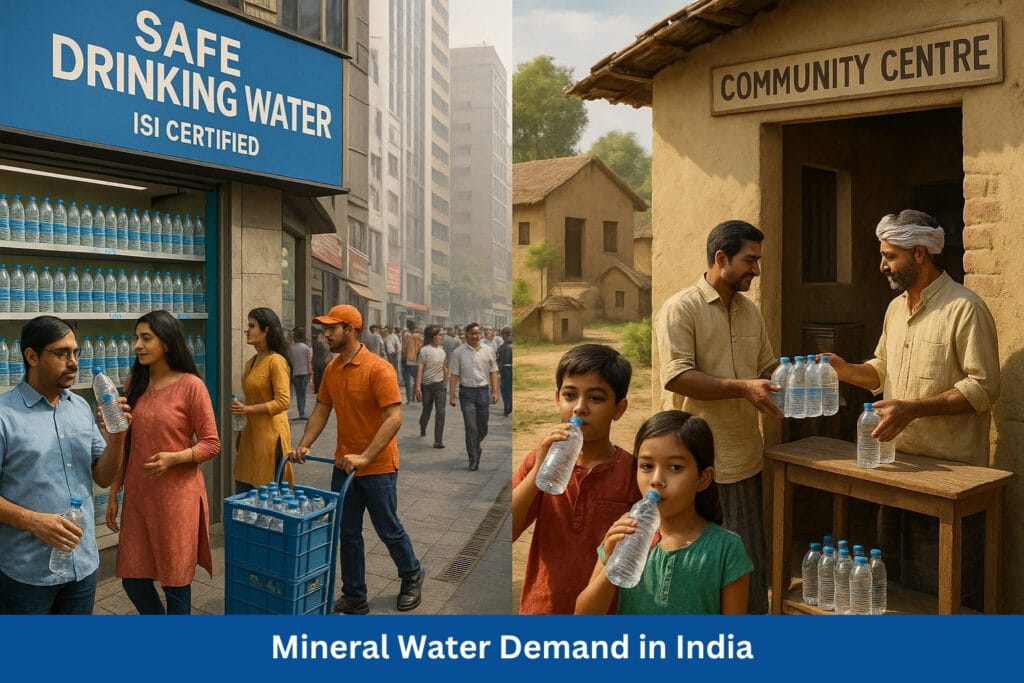
How does the demand for mineral water vary across Indian cities?
Demand for mineral water is highest in urban cities like Mumbai, Delhi, and Bangalore due to rapid urbanization, poor water quality in some areas, and increased awareness about health. Smaller towns and rural areas are seeing increasing demand as well.
What is the process for obtaining FSSAI approval for a mineral water plant?
To obtain FSSAI approval, a mineral water plant must:
- Apply for an FSSAI license.
- Submit details of the source of water, treatment process, and packaging.
- Meet the FSSAI standards for water quality and microbial safety.
What are the international regulations governing soft drink quality?
Internationally, Codex Alimentarius (WHO/FAO) regulates soft drink quality by setting limits on sugar content, preservatives, and coloring agents. EU regulations also provide guidelines on packaging, ingredient labeling, and additive usage.
Conclusion
Establishing a BIS approved laboratory for mineral water and soft drink quality control is critical for ensuring product safety and compliance with regulatory standards such as BIS, FSSAI, ISI, and WHO. This laboratory plays an essential role in maintaining the quality and safety of products, ensuring that manufacturers can meet both national and international standards. For further information or pricing, it’s advised to reach out to Dharmanandan Techno Project Pvt. Ltd. for personalized solutions.
About Author
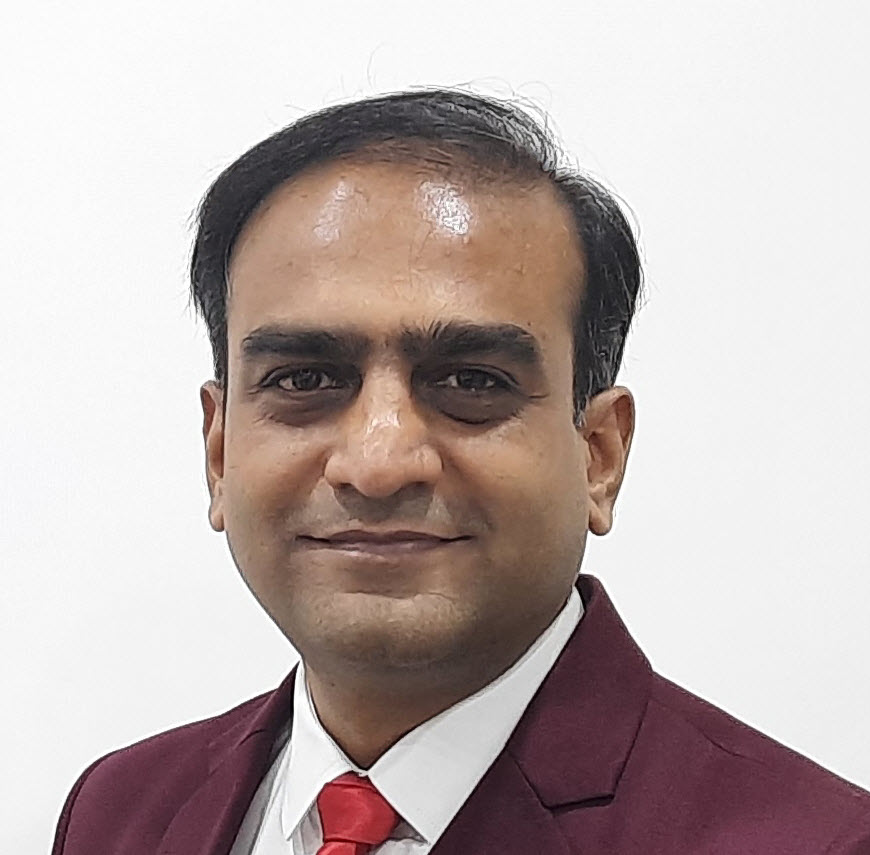
Director – Global Marketing and Sales
Mr. Bhavesh from Dharmanandan Techno Projects Pvt. Ltd. has played a pivotal role in elevating the DTPPL brand to the global stage, leveraging his exceptional expertise in marketing and communications. He is committed to helping clients achieve significant growth while strengthening their own brands. Dharmanandan Techno Projects Pvt. Ltd. is a leading manufacturer and supplier of water purification systems and turnkey solutions for mineral water plants. With years of experience in designing and delivering high-quality water treatment solutions, the company provides end-to-end services, including system design, installation, maintenance, and ongoing support. Specializing in scalable and customizable water plants, DTPPL has successfully served industries worldwide, ensuring clean and safe drinking water across diverse applications.




